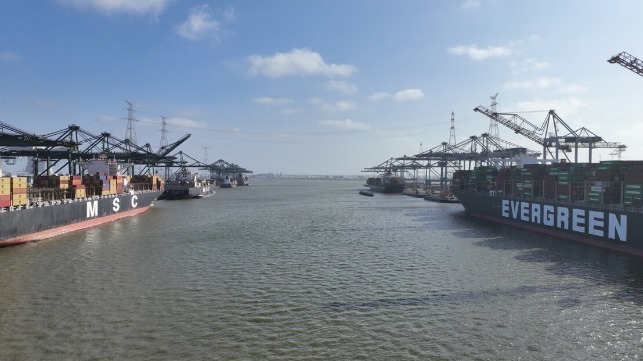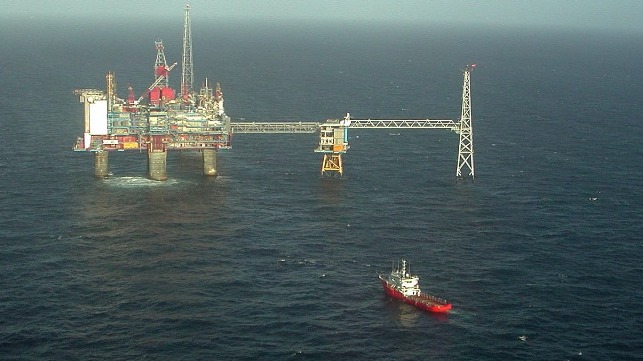ECOCIDE
Cleanup Underway After Oil Spill Impacts Antwerp’s Container Terminal

Port officials in Antwerp are saying that they expect it will take several days to fully complete a remediation effort after an oil spill that is encompassing the port’s Deurganck Dock, container operations, and Kieldrecht lock. About 20 ships, both inland and ocean-going, are reportedly impacted after a spill during a bunkering operation was detected late on Thursday afternoon, June 6.
“There is currently a selective ban on sailing to the Deurganck dock,” the Port of Antwerp-Brugges said in a statement on the situation. They emphasized that the terminals remain operational but that vessel traffic is being diverted with operations in the lock suspended to prevent the spread of the oil. “The other locks remain operational,” they said while confirming, “The situation is causing delays for some shipping.”
Port officials declined to name the source of the spill or speculate on the amount of oil that entered the water. A picture released by the port shows MSC vessels alongside, as well as one from Evergreen, and at least one bunker barge.
After reports of the spill, the port suspended operations in the area and launched a survey and recovery effort. They have drones deployed to get a picture of the extent of the spill while cleanup boats are already operational. They said absorbent booms and oil screens were being deployed.
The survey showed that some of the vessels were “stained” and port officials said they would not be permitted to leave until they have been cleaned. Oil has been found in the shipping channel and on the quay walls. However, they said they had not seen any oil in the Scheldt River.
Remediation boats are “sweeping” the oil from the waterway. The quay walls are also being cleaned.
Antwerp is Europe’s second busiest port and the Duerganck is home to the single largest container terminal in Europe operated by PSA. Owned jointly by PSA and MSC’s TIL, the terminal had nine berths and over 12,000 feet of quay. It was relocated nearly a decade ago to this location and expanded to have an annual throughput capacity of 9 million TEU.
Pipeline Crack Prompts Transport Shutdown at Sleipner Riser Platform

Equinor's Sleipner Riser platform has been forced to shut down some of its gas transport operations due to a crack in a pipe on board, and repairs to return it to service could take until June 7. The outage prompted a 10 percent jump in the benchmark Dutch TTF natural gas futures market, moderating to a five percent increase at the close on Monday.
According to Norwegian gas production company Gassco, a crack was discovered in a two-inch pipeline aboard the Sleipner Riser platform. The facility is the junction point for the Langeled North and Langeled South pipelines, which connect Norwegian gas sources with UK markets.
Gassco said that the platform's workers have shut down the connection temporarily for maintenance, causing a gas transport outage for export of natural gas from the Nyhamna processing plant to the UK's Easington receiving terminal on the other side of the North Sea.
The Langeled pipeline system (or Britpipe) is a subsea gas line completed in 2006-7. It connects Easington to the Sleipner Riser platform, then Sleipner Riser to Nyhamna, which feeds in gas from the Ormen Lange field. (Ormen Lange is a 100-percent subsea installation, with no offshore platforms.) Its maximum capacity is about 26 billion cubic meters a year, or roughly one fifth of the UK's annual natural gas needs.
The Sleipner Riser platform (Sleipner R) can transport dry gas from the prolific Sleipner field into pipelines connecting to Draupner and Zeebrugge, in addition to Easington. It is also a connection point for an export pipeline from the onshore Kollsnes gas processing plant.
Equinor has invested heavily in electrifying operations at the Sleipner field, and as of April, all installations in the area are receiving power from shore, saving emissions amounting to about 1.2 million tonnes of CO? per year.
No comments:
Post a Comment